12 Common Types of Butterflies in New Mexico (With Pictures)
-
Jana Blagojevic
- Last updated:
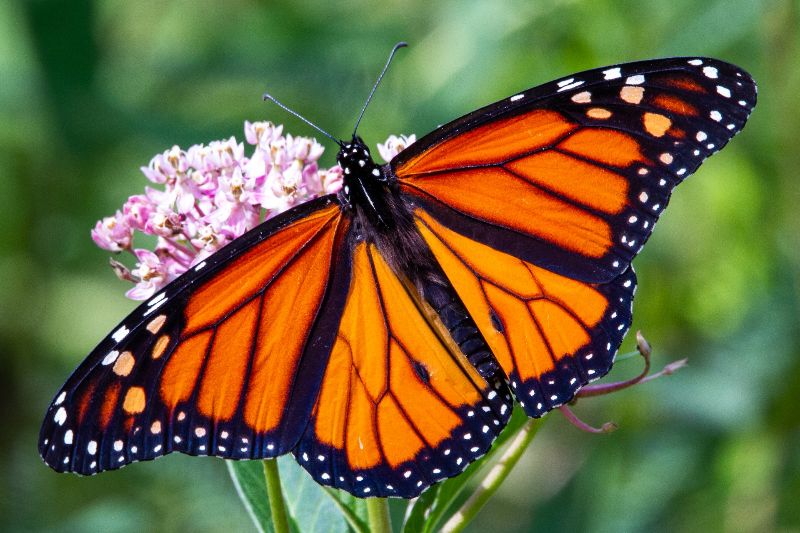
If you adore watching a spectacle of colorful butterflies in your garden, you may be wondering which butterfly species you are looking at. If you live in New Mexico and are curious about the types of butterflies that are common in your surroundings, we’re here to help.
In the article below, you can find the most common butterfly species found in New Mexico.

The 12 Types of Butterflies in New Mexico
1. Red Admiral
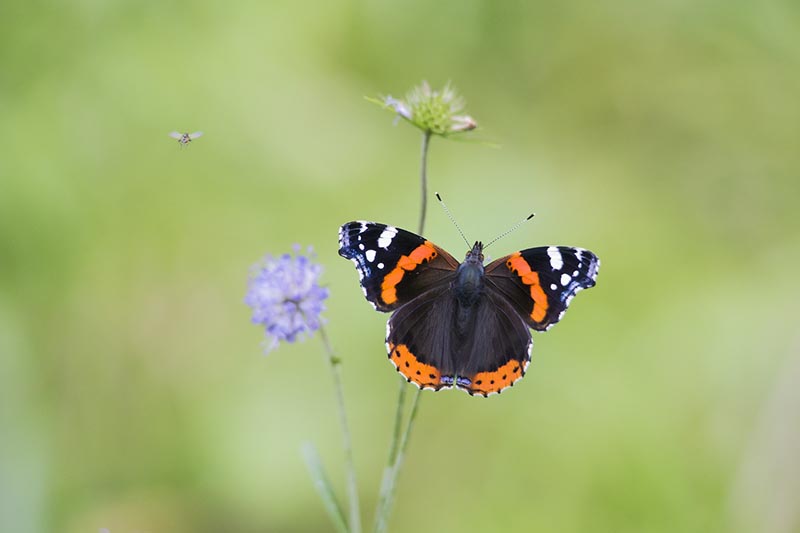
| Scientific name: | Vanessa atalanta |
| Range: | Europe, Asia, North Africa, the United States, and the Caribbean |
| Habitat: | Mountains tops, seasides, cities, and residential gardens |
The Red Admiral is a large and magnificent butterfly you can frequently find in residential gardens. It has a black body with red stripes and white dots across its wings. Their wingspan can range from 1.7 to 3 inches. These butterflies have been found across the globe, quickly adapting to the environment that surrounds them.
2. Silvery Blue
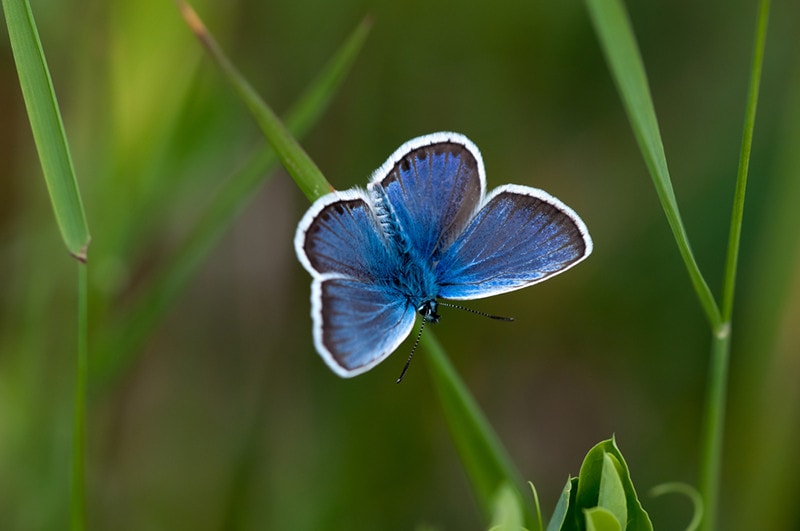
| Scientific name: | Glaucopsyche lygdamus |
| Range: | North America |
| Habitat: | Open woods, meadows, roadsides, prairies, moist rocky woods, grasslands |
The Silvery Blue is a small butterfly that can be spotted across North America, including New Mexico. It has a distinctive body that you can easily recognize. Its upper side is light and glossy blue, appearing almost shimmery. The wings have dark edges and white fringes. Its wingspan is usually less than an inch, although it can reach 1.1 inches. They adore open and wooded areas like meadows, prairies, and grasslands.
3. Orange Sulfur

| Scientific name: | Colias eurytheme |
| Range: | From Mexico throughout North America |
| Habitat: | Open fields, woodlands, meadows |
The Orange Sulfur is a lovely medium-sized butterfly that usually spends its days near alfalfa fields. Its wings can reach a span of around 2 inches. The wings are topped with dark brown shades and black margins. The color of their wings can vary, although they are usually yellowish to orange, while females can even appear green.
4. Clouded Sulfur
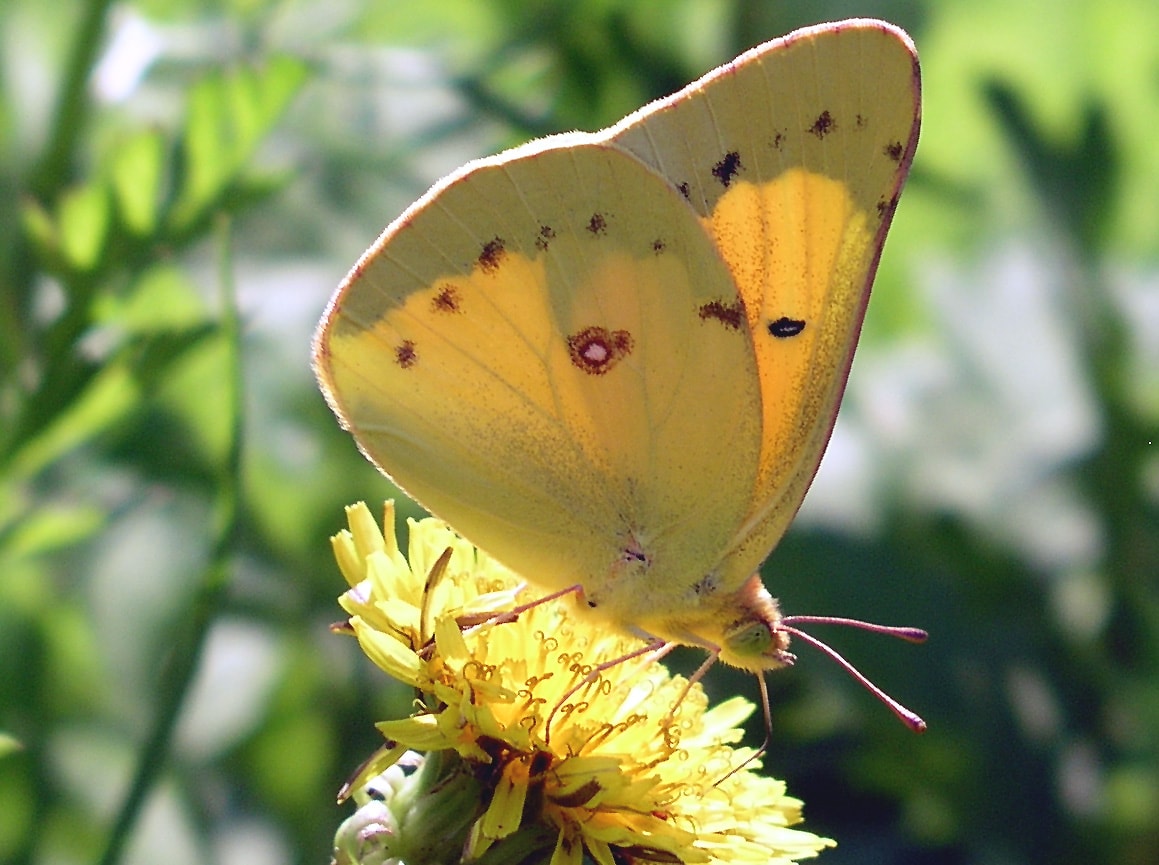
| Scientific name: | Colias philodice |
| Range: | North America |
| Habitat: | Moist meadows, lawns, clover fields |
The Clouded Sulfur, similar to the Orange Sulfur, is a medium-sized butterfly, commonly flying across meadows and fields of North America. Both sexes of the Clouded Sulfur have bright yellow bodies with black borders. The females are slightly different from the males since their wings have white spots on the margins. These butterflies are called “Sulfurs” because of their intense yellow coloring.
5. Cabbage White
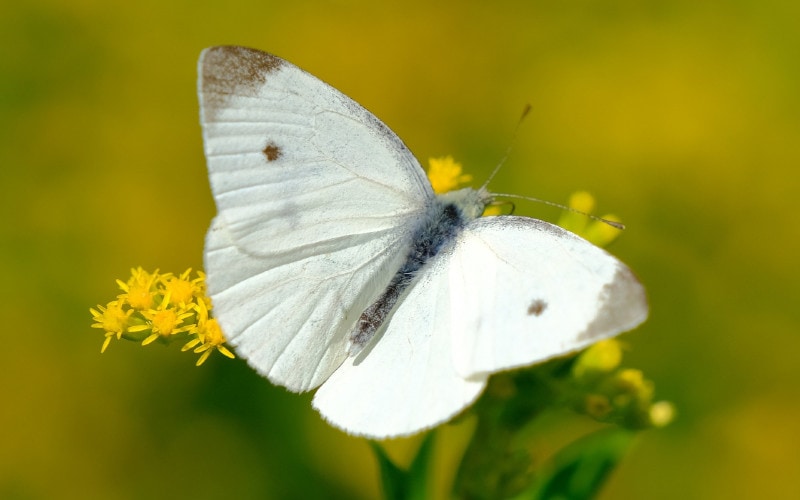
| Scientific name: | Pieris rapae |
| Range: | From central Canada through the United States to northwest Mexico |
| Habitat: | Open spaces, meadows, woods, bogs, suburbs, and residential gardens |
The Cabbage White butterfly is a lovely medium-sized butterfly with a gentle and soft appearance. Its wings are colored a creamy white with black dots, making these butterflies very easy to recognize. While their habitat is primarily woods and bogs, they love to spend their time in busy, residential areas such as suburbs and gardens.
6. Anise Swallowtail
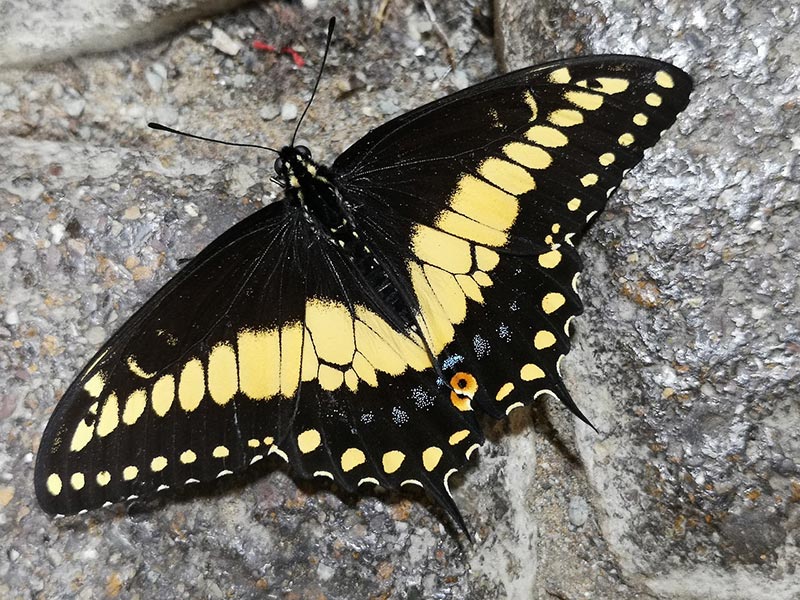
| Scientific name: | Papilio zelicaon |
| Range: | Southeastern United States to New Mexico |
| Habitat: | Hills, mountains, roadsides, residential gardens, vacant lot |
The Anise Swallowtail is a common butterfly often residing in residential gardens across the southern US and New Mexico. It is known for the yellow coloration of the wings, topped with intense black markings across its entire body. These butterflies are large, with their average wingspan varying from 2 to 3 inches.
7. Viceroy
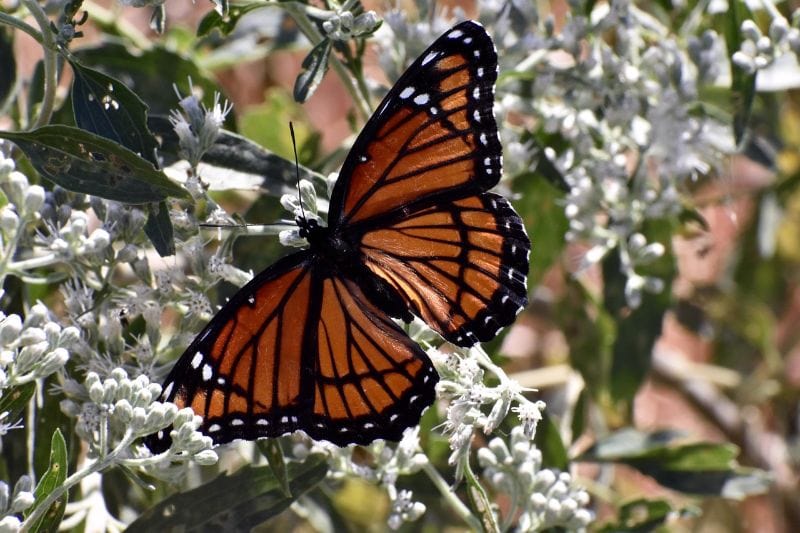
| Scientific name: | Limenitis archippus |
| Range: | Canada, continental United States to northern Mexico |
| Habitat: | Wet areas, swamps, marshes |
The Viceroy is a lovely brush-footed butterfly that is characterized by the tiny hairs that cover its forelegs. Its body is dark orange with black veins across the wings. Small rows of white spots cover the edges of the wings, creating a magical contrast. These butterflies reside primarily in wet areas such as swamps and marshes across the United States.
8. American Copper
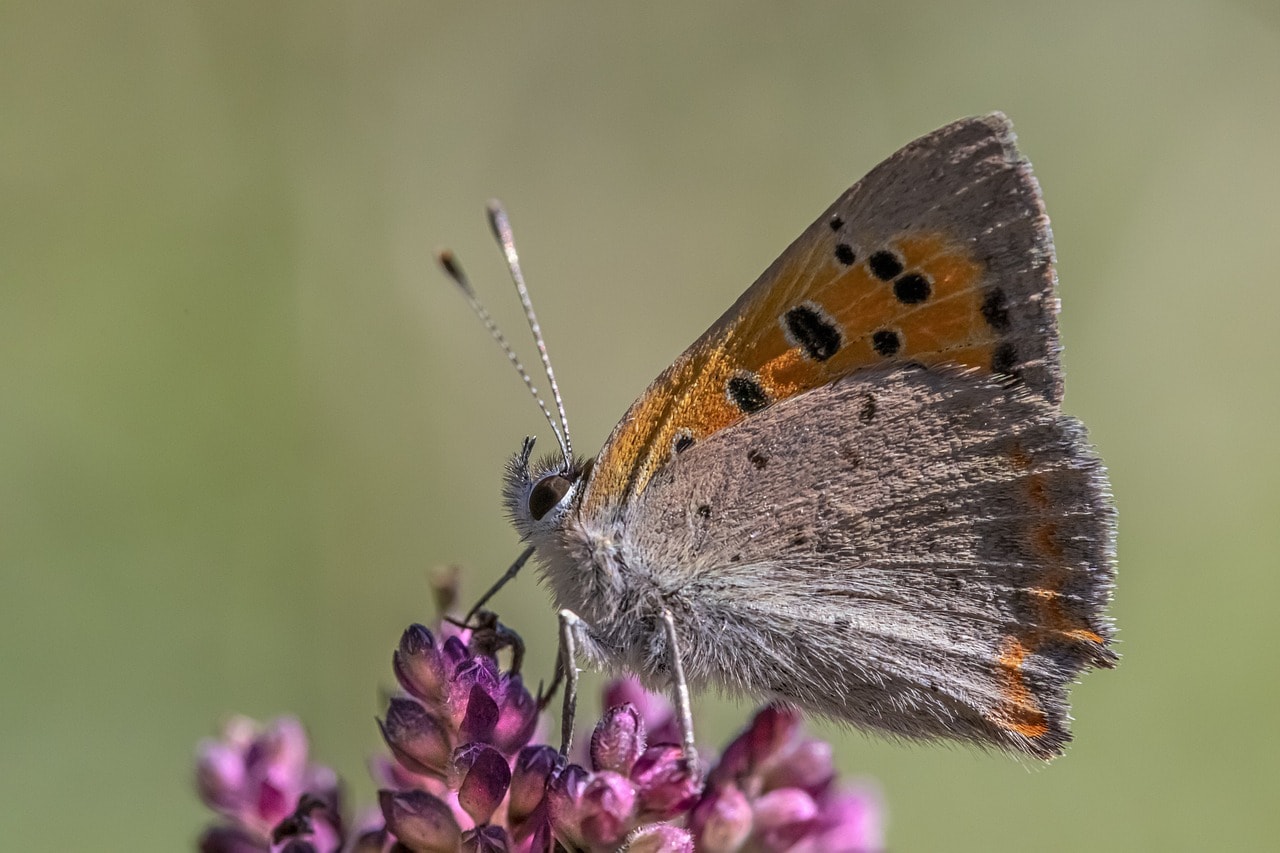
| Scientific name: | Lycaena phlaeas |
| Range: | North America, Europe, Asia, North Africa |
| Habitat: | Landfills, pastures, roadsides, fields |
The American Copper butterfly is a stunning medium-sized butterfly with unique patterns that make this butterfly stand out from the rest. The upper side of its wings is orange with large black spots. Its entire body is covered in gray hairs, creating a velvety appearance. The American Copper is one of North America’s most common species of butterfly.
9. Gray Hairstreak
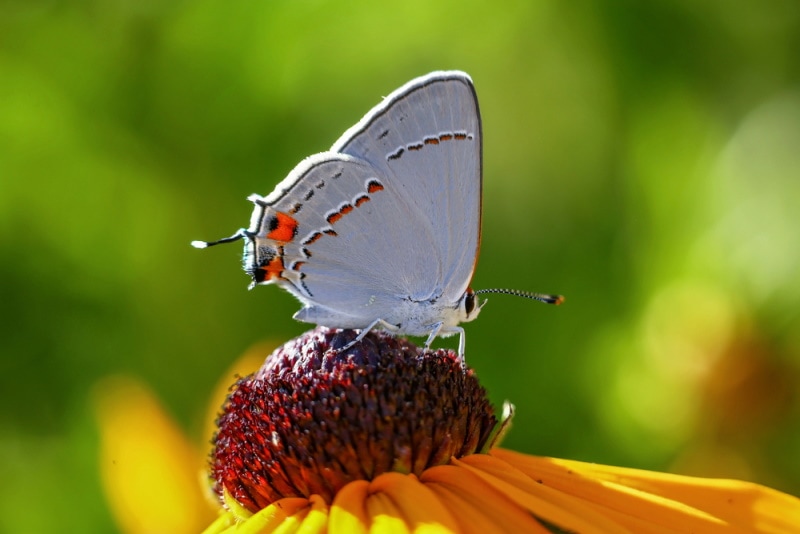
| Scientific name: | Strymon melinus |
| Range: | Southern Canada to Central and northern South America |
| Habitat: | Woodland areas, tropical forests, meadows, residential parks |
The Gray Hairstreak, also known as a cotton square borer, is found across North America. These lovely butterflies are small, with a wingspan of around 1 to 1.25 inches. They have similar color patterns to the American Copper, with their entire body and wings covered in gray. The males are grayish with an orange abdomen, while females have grayish-blue wings and a larger body.
10. Great Purple Hairstreak

| Scientific name: | Atlides halesus |
| Range: | Southern North America |
| Habitat: | Swamps, parks, woodlands |
The Great Purple Hairstreak is a small and handsome butterfly with a dusky purple underside with blue shades. The males have a much more colorful, velvety black body with red and golden markings. On the end of each wing, these butterflies have two tails, one short and one longer.
11. Hackberry Emperor
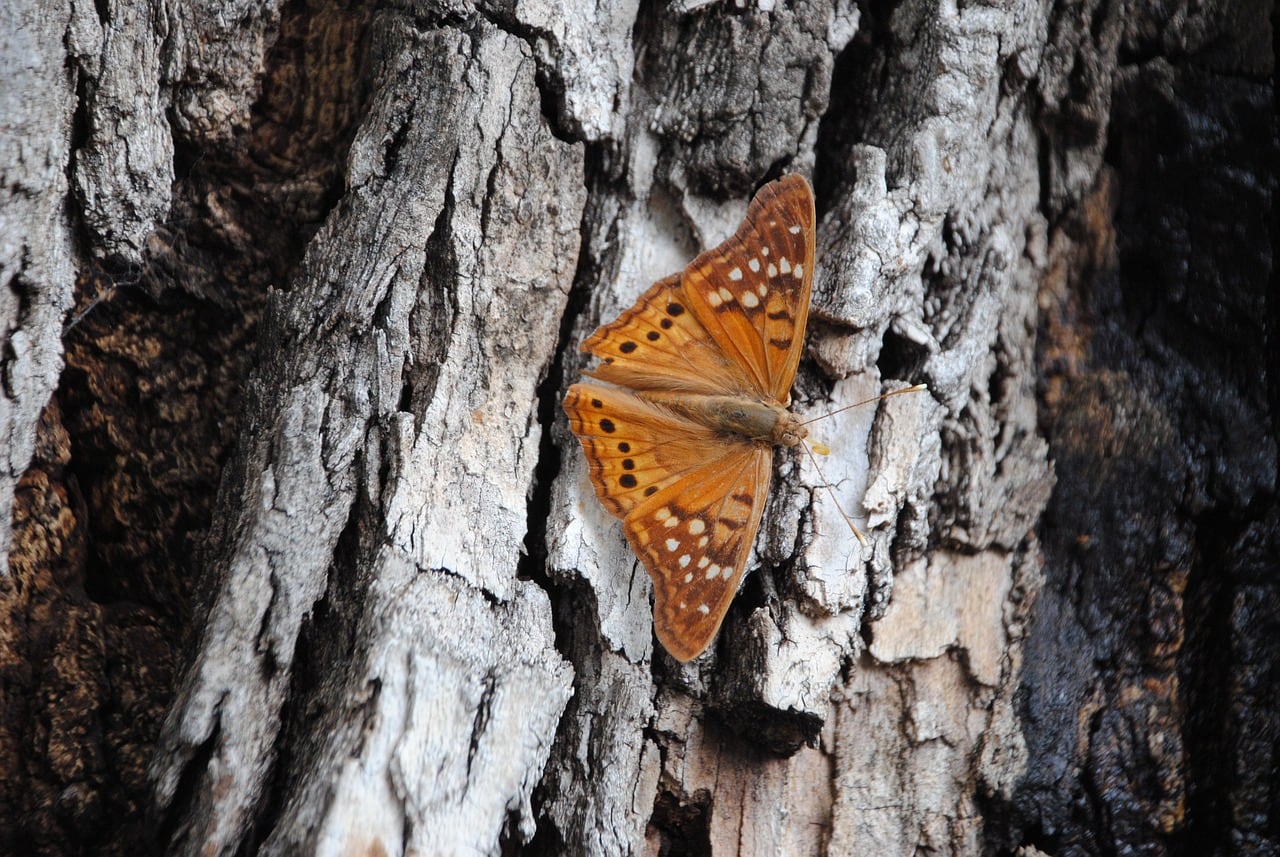
| Scientific name: | Asterocampa celtis |
| Range: | Southern Canada to the eastern United States |
| Habitat: | City yards, residential parks, roadsides, wooded areas, river edges |
The Hackberry Emperor is a medium to large-sized butterfly, usually flying across residential parks and yards, as well as wooded areas. These butterflies are challenging to spot in nature due to their appearance being similar to other species. They have black, light brown to orange wings with distinctive markings. The markings are seven black spots on the undersides of the wings and one black spot on the upper side.
12. Monarch
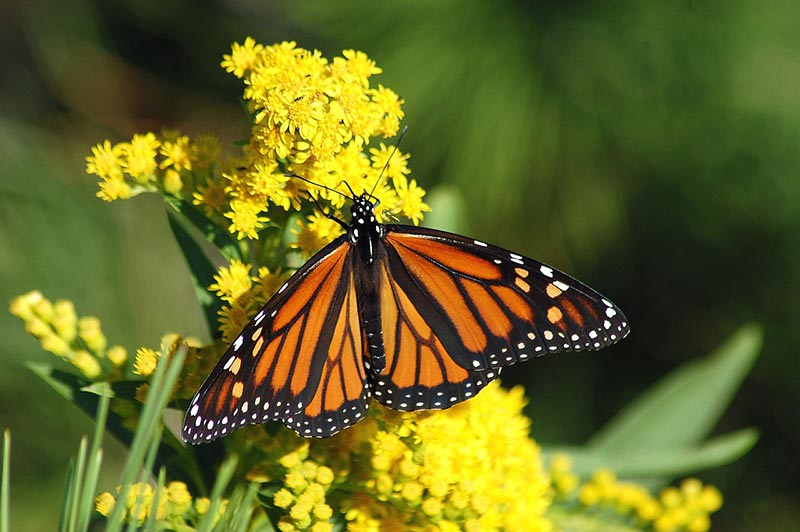
| Scientific name: | Danaus plexippus |
| Range: | Southern Canada to northern United States to central Mexico |
| Habitat: | Open areas, wet areas, gardens, fields, meadows, grassland |
The Monarch butterfly is one of the most unique-looking butterflies, with a large and majestic body. The males are usually larger than females, and their wingspan can reach up to 4 inches. Adult Monarch butterflies have bright orange wings with black veins and white dots on the margins. You can rarely spot these butterflies in residential areas and more in meadows, forests, and mountains.

Conclusion
After learning about the common butterflies that enrich the culture and nature of New Mexico, you can begin to recognize them in the wild. These butterflies are quite distinctive and will be easy to spot in most parks, meadows, or open fields once you study our descriptions above.
Featured Image Credit: Joshua J. Cotten, Unsplash
Contents
